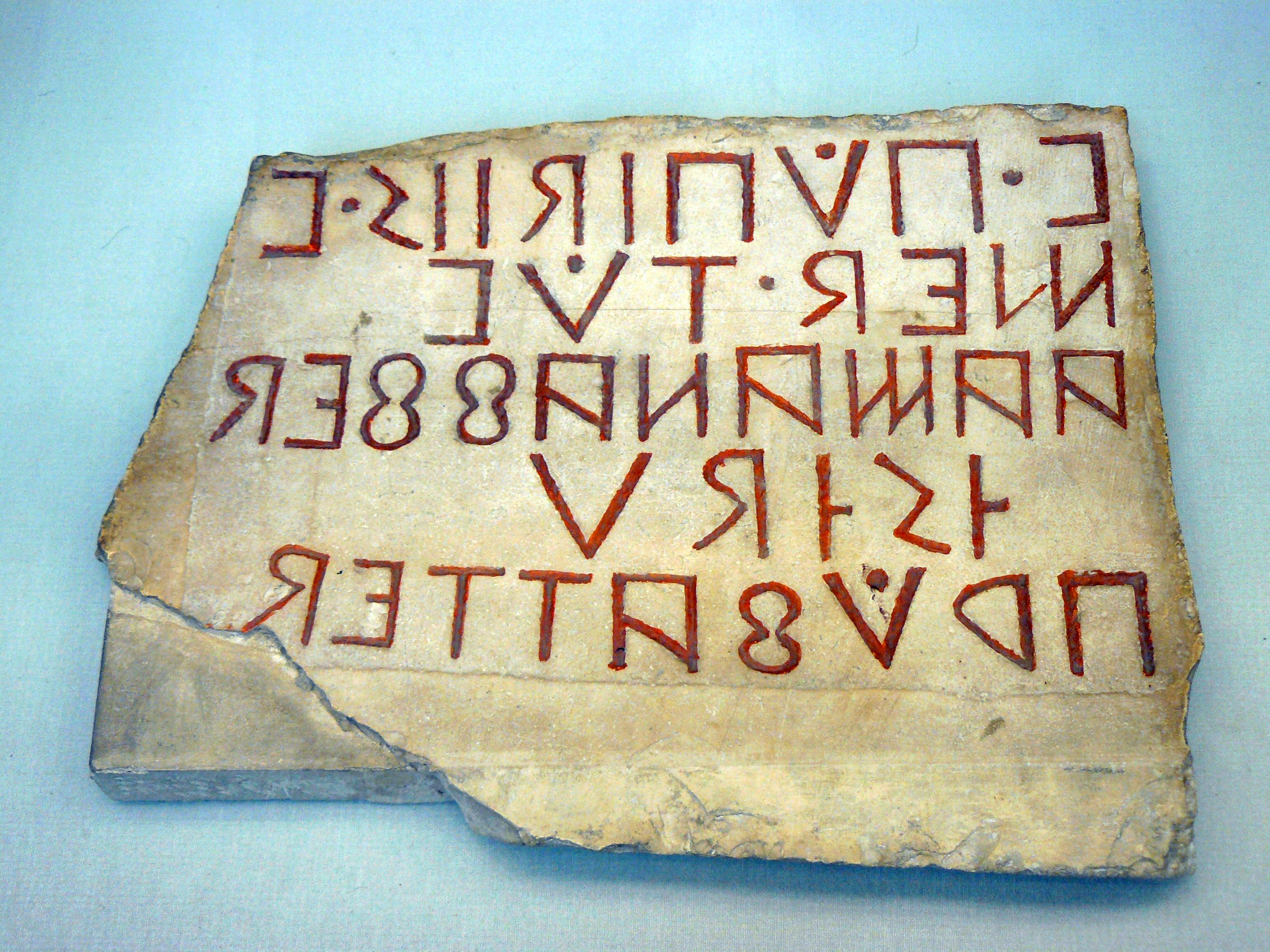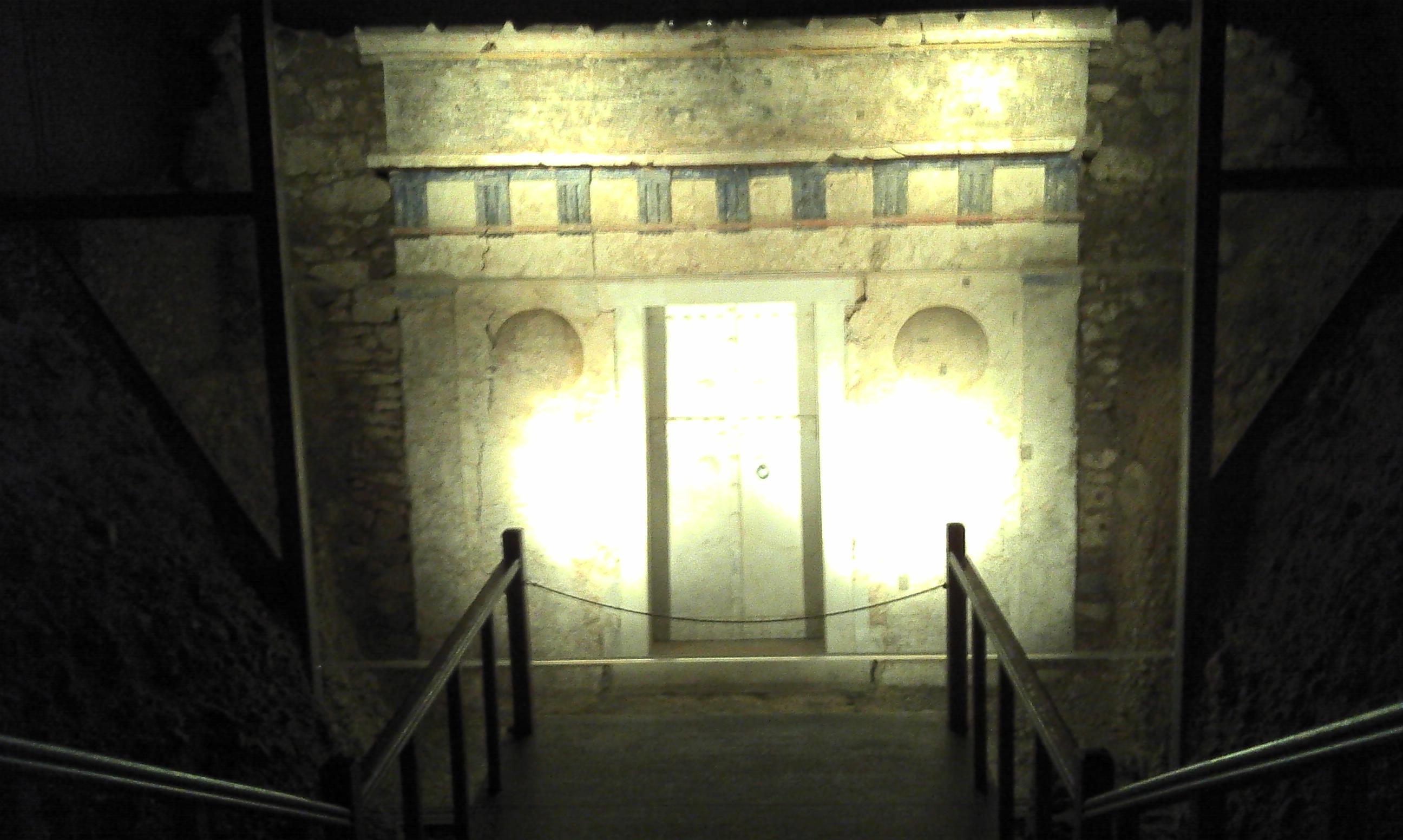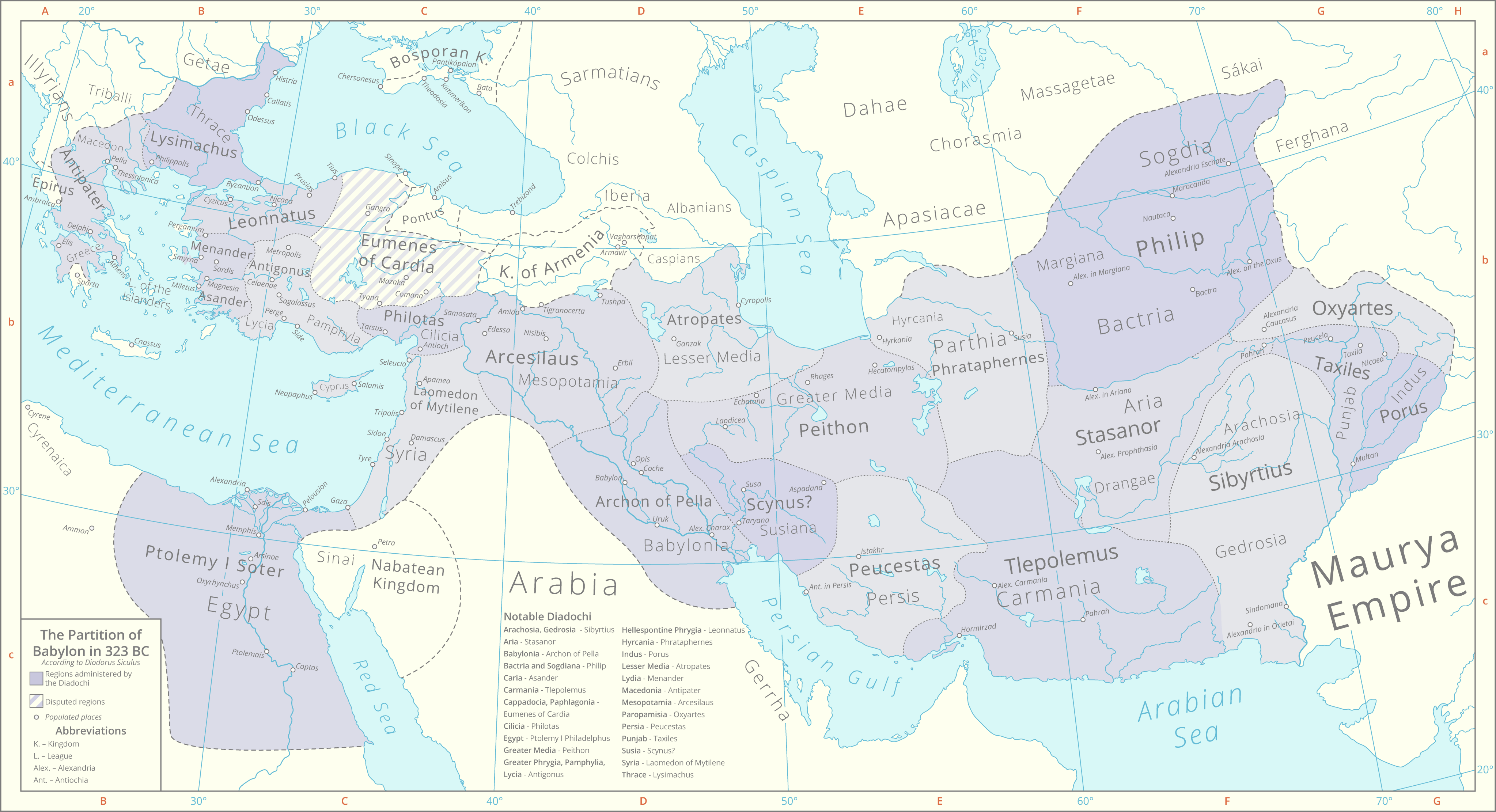|
321 BC
__NOTOC__ Year 321 BC was a year of the pre-Julian Roman calendar. At the time, it was known as the Year of the Consulship of Calvinus and Caudinus (or, less frequently, year 433 '' Ab urbe condita''). The denomination 321 BC for this year has been used since the early medieval period, when the Anno Domini calendar era became the prevalent method in Europe for naming years. Events By place Macedonian Empire * Antipater appoints Antigonus commander in chief of his army in Asia Minor and sends him with Craterus to fight against Eumenes, the satrap of Cappadocia and a supporter of Perdiccas. * Leaving Eumenes to hold Asia Minor against Craterus and Antigonus, Perdiccas marches against Ptolemy, but when he fails to cross the Nile he is murdered by mutinous officers. Prominent among the mutineers is Seleucus. A truce is arranged, leaving Ptolemy in power in Egypt and Seleucus in power in Babylon. * The key remaining generals (diadochi) of the late Alexander the Great agr ... [...More Info...] [...Related Items...] OR: [Wikipedia] [Google] [Baidu] |
Roman Calendar
The Roman calendar was the calendar used by the Roman Kingdom and Roman Republic. The term often includes the Julian calendar established by the reforms of the Roman dictator, dictator Julius Caesar and Roman emperor, emperor Augustus in the late 1stcenturyBC and sometimes includes any system dated by inclusive counting towards months' kalends, nones (calendar), nones, and ides (calendar), ides in the Roman manner. The term usually excludes the Alexandrian calendar of Roman Egypt, which continued the unique months of that land's Egyptian calendar, former calendar; the Byzantine calendar of the Byzantine Empire, later Roman Empire, which usually dated the Roman months in the simple count of the ancient Greek calendars; and the Gregorian calendar, which refined the Julian system to bring it into still closer alignment with the tropical year. Roman dates were counted inclusively forward to the next of three principal days: the first of the month (the kalends), a day shortly befor ... [...More Info...] [...Related Items...] OR: [Wikipedia] [Google] [Baidu] |
Diadochi
The Diadochi (; singular: Diadochus; from grc-gre, Διάδοχοι, Diádochoi, Successors, ) were the rival generals, families, and friends of Alexander the Great who fought for control over his empire after his death in 323 BC. The Wars of the Diadochi mark the beginning of the Hellenistic period from the Mediterranean Sea to the Indus River Valley. The most notable Diadochi include Ptolemy, Antigonus, Cassander, and Seleucus as the last remaining at the end of the Wars of the Successors, ruling in Egypt, Asia-Minor, Macedon and Persia respectively, all forging dynasties lasting several centuries. Background Ancient role In ancient Greek, is a noun (substantive or adjective) formed from the verb, ''diadechesthai'', "succeed to," a compound of ''dia-'' and ''dechesthai'', "receive." The word-set descends straightforwardly from Indo-European *dek-, "receive", the substantive forms being from the o-grade, *dok-. Some important English reflexes are dogma, "a receiv ... [...More Info...] [...Related Items...] OR: [Wikipedia] [Google] [Baidu] |
Samnium
Samnium ( it, Sannio) is a Latin exonym for a region of Southern Italy anciently inhabited by the Samnites. Their own endonyms were ''Safinim'' for the country (attested in one inscription and one coin legend) and ''Safineis'' for the The language of these endonyms and of the population was the Oscan language. However, not all the Samnites spoke Oscan, and not all the Oscan-speakers lived in Samnium. Ancient geographers were unable to relay a precise definition of Samnium's borders. Moreover, the areas it included vary depending on the time period considered. The main configurations are the borders it had during the ''floruit'' of the Oscan speakers, from about 600 BC to about 290 BC, when it was finally absorbed by the Roman Republic. The original territory of Samnium should not be confused with the later territory of the same name. Rome's first Emperor, Augustus, divided Italy into 11 regions. Although these entities only served administrative purposes, and were identified ... [...More Info...] [...Related Items...] OR: [Wikipedia] [Google] [Baidu] |
Consul
Consul (abbrev. ''cos.''; Latin plural ''consules'') was the title of one of the two chief magistrates of the Roman Republic, and subsequently also an important title under the Roman Empire. The title was used in other European city-states through antiquity and the Middle Ages, in particular in the Republics of Genoa and Pisa, then revived in modern states, notably in the First French Republic. The related adjective is consular, from the Latin ''consularis''. This usage contrasts with modern terminology, where a consul is a type of diplomat. Roman consul A consul held the highest elected political office of the Roman Republic (509 to 27 BC), and ancient Romans considered the consulship the highest level of the ''cursus honorum'' (an ascending sequence of public offices to which politicians aspired). Consuls were elected to office and held power for one year. There were always two consuls in power at any time. Other uses in antiquity Private sphere It was not uncommon for an ... [...More Info...] [...Related Items...] OR: [Wikipedia] [Google] [Baidu] |
Samnites
The Samnites () were an ancient Italic people who lived in Samnium, which is located in modern inland Abruzzo, Molise, and Campania in south-central Italy. An Oscan-speaking people, who may have originated as an offshoot of the Sabines, they formed a confederation consisting of four tribes: the Hirpini, Caudini, Caraceni, and Pentri. Although allied together against the Gauls in 354 BC, they later became enemies of the Romans and fought them in a series of three wars. Despite an overwhelming victory at the Battle of the Caudine Forks (321 BC), the Samnites were subjugated in 290 BC. Although severely weakened, the Samnites would still side against the Romans, first in the Pyrrhic War and then with Hannibal in the Second Punic War. They also fought in the Social War and later in Sulla's civil war as allies of the Roman consuls Papirius Carbo and Gaius Marius against Sulla, who defeated them and their leader Pontius Telesinus at the Battle of the Colline Gate (82 BC). Afterward ... [...More Info...] [...Related Items...] OR: [Wikipedia] [Google] [Baidu] |
Roman Republic
The Roman Republic ( la, Res publica Romana ) was a form of government of Rome and the era of the classical Roman civilization when it was run through public representation of the Roman people. Beginning with the overthrow of the Roman Kingdom (traditionally dated to 509 BC) and ending in 27 BC with the establishment of the Roman Empire, Rome's control rapidly expanded during this period—from the city's immediate surroundings to hegemony over the entire Mediterranean world. Roman society under the Republic was primarily a cultural mix of Latin and Etruscan societies, as well as of Sabine, Oscan, and Greek cultural elements, which is especially visible in the Roman Pantheon. Its political organization developed, at around the same time as direct democracy in Ancient Greece, with collective and annual magistracies, overseen by a senate. The top magistrates were the two consuls, who had an extensive range of executive, legislative, judicial, military, and religious powers ... [...More Info...] [...Related Items...] OR: [Wikipedia] [Google] [Baidu] |
Lycaonia
Lycaonia (; el, Λυκαονία, ''Lykaonia''; tr, Likaonya) was a large region in the interior of Asia Minor (modern-day Turkey), north of the Taurus Mountains. It was bounded on the east by Cappadocia, on the north by Galatia, on the west by Phrygia and Pisidia, while to the south it extended to the chain of Mount Taurus, where it bordered on the country popularly called in earlier times Cilicia and in the Byzantine period Isauria; but its boundaries varied greatly at different times. The name is not found in Herodotus, but Lycaonia is mentioned by Xenophon as traversed by Cyrus the Younger on his march through Asia. That author describes Iconium as the last city of Phrygia; and in Acts 14:6 Paul, after leaving Iconium, crossed the frontier and came to Lystra in Lycaonia. Ptolemy, on the other hand, includes Lycaonia as a part of the province of Cappadocia, with which it was associated by the Romans for administrative purposes; but the two countries are clearly distinguished ... [...More Info...] [...Related Items...] OR: [Wikipedia] [Google] [Baidu] |
Eurydice Of Egypt
Eurydice ( grc, Εὐρυδίκη) third known wife to Ptolemy I Soter and as such a queen of Egypt Life Eurydice (ca. 330-post 279 BCE) is thought to be the youngest of Antipater's known daughters. Her wedding date and repudiation date are a topic of debate as is the repudiation itself. Scholars have narrowed down the date between 322-319 BCE with van Oppen arguing for 319 BCE citing Antipater's rise in position from the Macedonian regent in Europe to a seat in the regency of the kings in late 320 BCE. Four children are attributed to Eurydice with a possible unknown fifth: Ptolemy Ceraunus, Meleager, Ptolemais, and Lysandra. Ptolemy Ceraunus was expected to be his father's heir, but in 285/4 BCE Ptolemy I chose his youngest son Ptolemy II (whose mother was the fourth wife Berenice I, Eurydice's cousin) instead. Ptolemy Ceraunus and Meleager both consecutively ruled as king of Macedon for a short amount of time before being killed. Ptolemais married Demetrius I of Macedon an ... [...More Info...] [...Related Items...] OR: [Wikipedia] [Google] [Baidu] |
Cyrene, Libya
Cyrene ( ) or Kyrene ( ; grc, Κυρήνη, Kyrḗnē, arb, شحات, Shaḥāt), was an ancient Greek and later Roman city near present-day Shahhat, Libya. It was the oldest and most important of the five Greek cities, known as the pentapoleis, in the region. It gave eastern Libya the classical name ''Cyrenaica'' that it has retained to modern times. Located nearby is the ancient Necropolis of Cyrene. The traditional founder of the city was Battus the Lacedemonian, though the exact relationship between the fledgling city and other cities has led historians to question that narrative. Particularly, the idea that Thera was the sole "mother city" is disputed; and the relationship with other cities, such as Sparta and Samnium merchants, is unclear. Cyrene lies in a lush valley in the Jebel Akhdar uplands. The city was named after a spring, Kyre, which the Greeks consecrated to Apollo. It became the seat of the Cyrenaics, a famous school of philosophy in the fourth century BC, fo ... [...More Info...] [...Related Items...] OR: [Wikipedia] [Google] [Baidu] |
Alexander IV Of Macedon
Alexander IV (Greek: ; 323/322– 309 BC), sometimes erroneously called Aegus in modern times, was the son of Alexander the Great (Alexander III of Macedon) and Princess Roxana of Bactria. Birth Alexander IV was the son of Alexander the Great (a Macedonian Greek) and Alexander's wife Roxana (a Sogdian). He was the grandson of Philip II of Macedon. Because Roxana was pregnant when Alexander the Great died on 11 June 323 BC and the sex of the baby was unknown, there was dissension in the Macedonian army regarding the order of succession. While the infantry supported Alexander the Great's half-brother Philip III (who had some unknown cognitive disability present throughout his life), the chiliarch Perdiccas, commander of the elite Companion cavalry, persuaded them to wait in the hope that Roxana's child would be male. The factions compromised, deciding that Perdiccas would rule the Empire as regent while Philip would reign, but only as a figurehead with no real power. ... [...More Info...] [...Related Items...] OR: [Wikipedia] [Google] [Baidu] |
Philip III Arrhidaeus
Philip III Arrhidaeus ( grc-gre, Φίλιππος Ἀρριδαῖος ; c. 359 BC – 25 December 317 BC) reigned as king of Macedonia an Ancient Greek Kingdom in northern Greece from after 11 June 323 BC until his death. He was a son of King Philip II of Macedon by Philinna of Larissa, and thus an elder half-brother of Alexander the Great. Named Arrhidaeus at birth, he assumed the name Philip when he ascended to the throne. As Arrhidaeus grew older it became apparent that he had mild learning difficulties. Plutarch was of the view that he became disabled by means of an attempt on his life by Philip II's wife, Queen Olympias, who wanted to eliminate a possible rival to her son, Alexander, through the employment of ''pharmaka'' (drugs/spells); however, most modern authorities doubt the truth of this claim. Alexander was fond of Arrhidaeus and took him on his campaigns, both to protect his life and to prevent his use as a pawn in any prospective challenge for the throne. After Al ... [...More Info...] [...Related Items...] OR: [Wikipedia] [Google] [Baidu] |
Partition Of Babylon
The Partition of Babylon was the first of the conferences and ensuing agreements that divided the territories of Alexander the Great. It was held at Babylon in June 323 BC. Alexander’s death at the age of 32 had left an empire that stretched from Greece all the way to India. The issue of succession resulted from the claims of the various supporters of Philip Arrhidaeus (Alexander’s half-brother), and the as-of-then unborn child of Alexander and Roxana, among others. The settlement saw Arrhidaeus and Alexander’s child designated as joint kings with Perdiccas serving as regent. The territories of the empire became satrapies divided between the senior officers of the Macedonian army and some local governors and rulers. The partition was solidified at the further agreements at Triparadisus and Persepolis over the following years and began the series of conflicts that comprise the Wars of the Diadochi. The term "Partition of Babylon" is a modern designation. Definition of part ... [...More Info...] [...Related Items...] OR: [Wikipedia] [Google] [Baidu] |

.jpeg)






